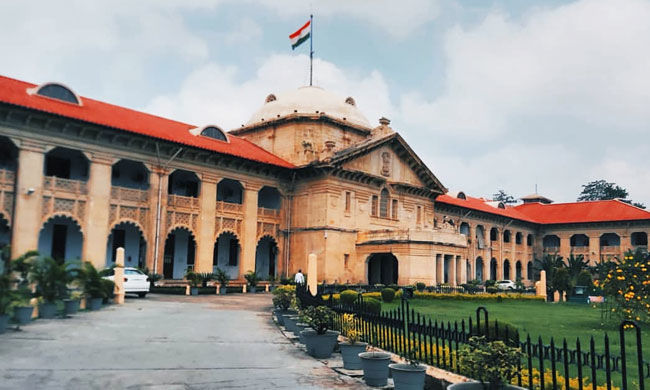The Allahabad High Court while allowing the petition said that if the goods in question are not in the schedule of the New Act, the authorities had no jurisdiction whatsoever to impose entry tax on the same.
A Single Bench of Justice Shekhar B Saraf passed this order while hearing a petition filed by M/S United Spirits Limited.
This is a writ petition under Article 226 of the Constitution of India wherein the writ petitioner is aggrieved by the adjudication order dated March 3, 2008 for recovery of the amount of Rs 2,78,02,393/- being entry tax for the period of April to May, 2005 and the order passed in appeal dated December 31, 2022.
Counsel appearing on behalf of the petitioner submitted that the provisional assessment order dated April 19, 2006 was passed as per Section 4(A) of the Uttar Pradesh Entry of Goods into Local Area Tax Act, 2000 read with Rule 41(5) of the Uttar Pradesh Sales Tax Rule 2000. Subsequently, a final assessment order dated March 30, 2008 was passed.
Counsel appearing on behalf of the petitioner further submitted that the Act was held to be ultra vires by the High Court, Allahabad and the matter is pending before the Supreme Court.
In the meantime, the present Act was brought in by way of an ordinance and is named as Uttar Pradesh Entry of goods into Local Area Act, 2007. The Act in Section 1(3) makes it clear that the Act would be deemed to be in force from November 1, 1999.
The proceedings have all taken place under the New Act as earlier Act has been declared ultra vires by the High Court. It is to be noted that in the New Act entry tax is leviable on the goods that are mentioned in the schedule. However, the goods in question in the case is Indian Made Foreign Liquor (IMFL) which is not mentioned in the schedule.
Counsel for the petitioner submitted that the entire proceedings that have culminated into the present liability are non est in law and without any basis whatsoever.
Counsel appearing on behalf of the State has relied on Sections 17 and 18 of the New Act to indicate that all actions taken under the earlier Act of 2000 shall be deemed to have been validly taken.
“The only issue before the Court is whether the authorities below acted in accordance with law at the time of passing the impugned orders. It is clear that the provisional assessment was done as per the earlier Act of 2000 while final assessment has been done under the New Act. The arguments raised by counsel appearing on behalf of the petitioner appears to be a valid one with regard to the fact that the New Act does not contain IMFL in the schedule, and accordingly, under the New Act, no final assessment could have been done with regard to the goods which were not included in the schedule of the New Act. The Appellate Authority while passing the order dated December 31, 2022 has not considered the arguments placed by the petitioner with regard to the absence of goods in question in the schedule. It is to be noted that if the goods in question are not in the schedule of the New Act, the authorities had no jurisdiction whatsoever to impose entry tax on the same. This question is going to the very root of the matter and the authority should have considered and answered the same.
In my view, the orders passed are bereft of any reason with regard to imposition of entry tax on IMFL that is not even an item in the schedule to the New Act.
In light of the same, impugned orders are unreasoned and have been passed in a non speaking manner”, the Court observed while allowing the petition.
Accordingly, the Court quashed and set aside the order dated December 31, 2022 with a direction upon the authority concerned to grant another opportunity of hearing to the petitioner and pass a reasoned order on the same and specifically giving reasons with regard to imposition of tax on the particular goods that are not mentioned in the schedule of New Act. The parties shall be at liberty to place the relevant documents and judgments before the authority concerned. The entire exercise should be completed within a period of three months from date. Upon passing of the reasoned order a copy of the same be handed over to the petitioner within a week, thereafter.


